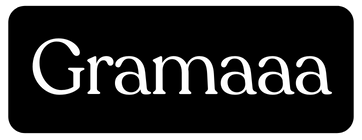When someone says ‘no pun intended,’ it’s when they say something that might be interpreted in two ways: one obvious and one slightly ‘odd,’ and they want you to know they’re not putting a deliberate play on words and that you should take what they said at face value.
For instance, a man challenges his friend to kiss a huge woman, to which his friend responds, ‘Fat chance! No pun intended.’ At first glance, ‘no pun intended’ implies that, while the speaker may have unintentionally made a play on words, it was entirely unintentional. Another example is when a speaker wants to disassociate himself from a horrible pun that didn’t go over well. Simply put, if someone makes a joke that everyone groans at, the speaker can humbly say, ‘no pun intended,’ and backtrack a little.
The Origin of ‘No Pun Intended’
Adding ‘no pun intended’ as an aside dates back to at least the early 1800s. From its start, the expression had a playful quality, used by a writer or speaker when they’ve made some wordplay, whether a pun or other double entendre, that was right on the nose. An early example comes from a mid-1800s story about an offending turkey described as ‘fowl play (‘no pun intended’).’ The phrase spread in the 20th century. Beat author William S. Burroughs crassly employed it in a 1937 piece for Esquire, for example: ‘I’m proud of my mother. She’s 71 and she’s still expanding (mentally I mean—no pun intended).’
Usage of ‘No Pun Intended’
When someone says ‘no pun intended,’ it’s when they say something that might be interpreted in two ways: one obvious and one slightly ‘odd,’ and they want you to know they’re not putting a deliberate play on words and that you should take what they said at face value. Puns, on the other hand, are frequently regarded with derision, particularly among the younger generation. They’re regarded as the easiest jokes to create, or the ‘low-hanging fruit,’ because they don’t require a lot of wit or intelligence to come up with.
Examples of ‘No Pun Intended’
For instance, a man challenges his friend to kiss a huge woman, to which his friend responds, ‘Fat chance! No pun intended.’ At first glance, ‘no pun intended’ implies that, while the speaker may have unintentionally made a play on words, it was entirely unintentional. Another example is when a speaker wants to disassociate himself from a horrible pun that didn’t go over well. Simply put, if someone makes a joke that everyone groans at, the speaker can humbly say, ‘no pun intended,’ and backtrack a little.
Who Uses ‘No Pun Intended’?
‘No pun intended’ is most often used, ironically enough, to call attention to a pun one has made. Often these puns are deliberate, corny, but too wonderfully dad joke-y to resist … and other times the puns are inadvertent but realized in the moment, too droll or drily humorous to let slip by without notice. Occasionally, people use ‘no pun intended’ as if it means ‘no exaggeration,’ a mistake likely due to the fact that ‘no pun intended’ is a familiar stock phrase.
FAQs
What is the origin of the phrase ‘no pun intended’?
The phrase ‘no pun intended’ dates back to at least the early 1800s, with playful origins used by writers or speakers when acknowledging wordplay.
How is ‘no pun intended’ used in modern language?
‘No pun intended’ is often used to draw attention to a pun one has made, whether deliberate or inadvertent, and is sometimes mistakenly used to mean ‘no exaggeration.’
What is the purpose of using ‘no pun intended’?
The purpose of using ‘no pun intended’ is to clarify that a statement was not meant as a deliberate play on words and should be taken at face value.
Can ‘no pun intended’ be used to disassociate from a bad pun?
Yes, ‘no pun intended’ can be used to distance oneself from a pun that didn’t go over well, signaling that the pun was unintentional.
